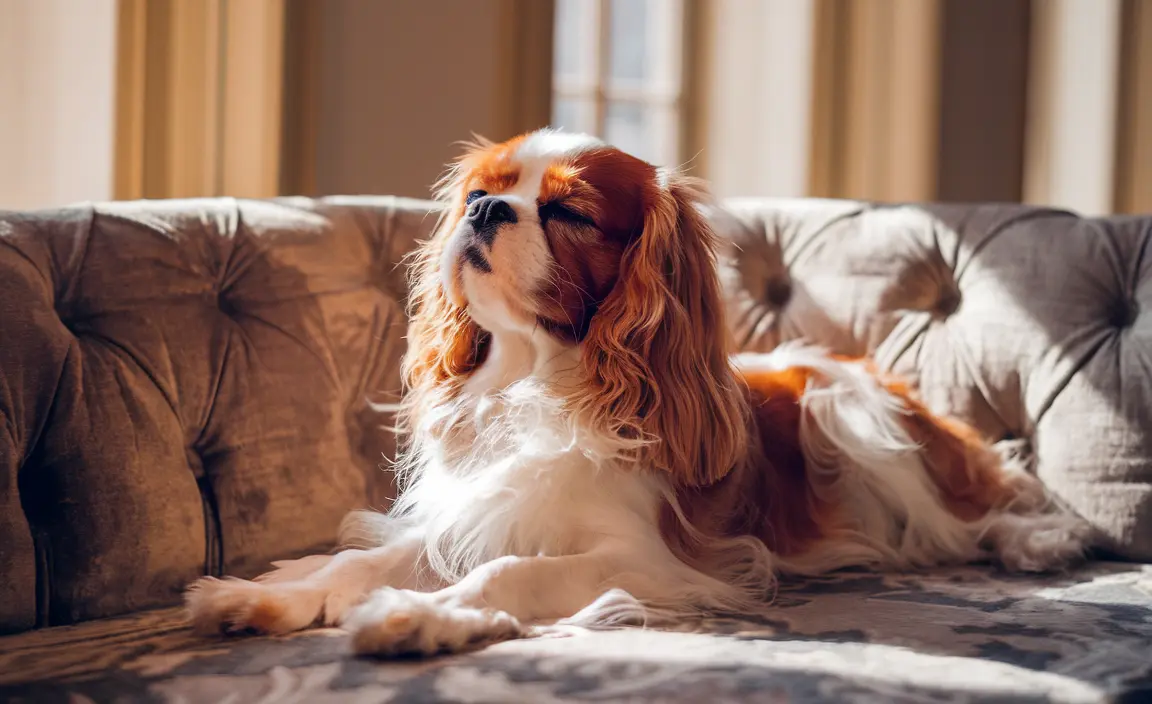Finding the perfect lap dog can transform your home into a warm, affectionate sanctuary. These small, loving companions are more than just pets – they're devoted friends who thrive on human connection and bring endless joy to our lives. Whether you're living in a compact city apartment or a spacious suburban home, the right lap dog can provide companionship, comfort, and unconditional love.
In this comprehensive guide, we'll explore the top lap dog breeds that excel at being adorable, cuddly, and perfectly suited to indoor living. From hypoallergenic options to breeds with charming personalities, we'll help you discover your ideal furry companion.
Top Lap Dog Breeds for Ultimate Companionship
Bichon Frise: The Cheerful Cuddle Buddy
The Bichon Frise stands out as a premier lap dog breed, offering a perfect blend of playfulness and affection. With its fluffy, hypoallergenic coat and cheerful disposition, this breed is ideal for families and individuals seeking a low-shedding companion. These dogs typically weigh between 10-20 pounds, making them compact enough for close cuddles while maintaining an energetic, spirited personality.
Cavalier King Charles Spaniel: Royalty of Lap Dogs
Renowned for their gentle temperament and adaptable nature, Cavalier King Charles Spaniels epitomize the perfect lap dog. These dogs are incredibly affectionate, thriving in various living environments from small apartments to larger homes. Their soft, silky coats and expressive eyes make them irresistible companions who genuinely enjoy close human contact.
French Bulldog: The Urban Companion
French Bulldogs have become increasingly popular among city dwellers, and for good reason. These compact, muscular dogs are the ultimate indoor companions, characterized by their mellow temperament and love for snuggling. While they're prone to some health concerns like brachycephalic syndrome, their affectionate nature and low exercise requirements make them ideal lap dogs.
Health and Care Considerations for Lap Dogs
Grooming Essentials
Most lap dog breeds require regular grooming to maintain their coat health and appearance. Breeds like the Havanese and Maltese need frequent brushing to prevent matting, while hypoallergenic options like the Bichon Frise demand professional grooming every 4-6 weeks. Regular coat maintenance not only keeps your dog looking adorable but also prevents skin issues and discomfort.
Managing Potential Health Challenges
While lap dogs are generally robust, certain breeds are predisposed to specific health conditions. Pugs and French Bulldogs, for instance, can experience respiratory issues due to their flat faces. Similarly, small breeds often face dental challenges and are prone to obesity. Regular veterinary check-ups, a balanced diet, and moderate exercise are crucial in maintaining your lap dog's overall health.
Choosing the Right Lap Dog for Your Lifestyle
Considerations Before Adoption
When selecting a lap dog, consider factors beyond size and appearance. Some breeds like the Shih Tzu and Bolognese thrive on constant companionship and may develop separation anxiety. Others, such as the Maltese, have strong watchdog tendencies despite their small size. Understanding each breed's unique personality and needs ensures a harmonious relationship.
Frequently Asked Questions
What are the best lap dog breeds for people living in small apartments?
Excellent apartment-friendly lap dogs include French Bulldogs, Pugs, Maltese, and Shih Tzus. These breeds are compact, low-energy, and adapt well to limited spaces while providing maximum companionship.
How often should I groom my lap dog to maintain its coat?
Grooming frequency varies by breed. Hypoallergenic breeds like Bichon Frise and Maltese typically require professional grooming every 4-6 weeks, with daily brushing to prevent matting. Short-haired breeds like Pugs need less intensive grooming.
What health issues are common in popular lap dog breeds?
Common health concerns include respiratory issues in brachycephalic breeds like Pugs and French Bulldogs, dental problems in small breeds, and potential joint issues. Regular veterinary check-ups and preventative care are essential.
Can lap dogs like Chihuahuas and Pugs adapt to households with small children?
While individual temperaments vary, breeds like Cavalier King Charles Spaniels and Shih Tzus are generally good with children. Always supervise interactions and teach children to handle small dogs gently and respectfully.
How do I train my lap dog to reduce separation anxiety?
Gradual desensitization, creating positive associations with alone time, providing engaging toys, and establishing consistent routines can help reduce separation anxiety. Professional training and, in some cases, behavioral therapy can also be beneficial.






